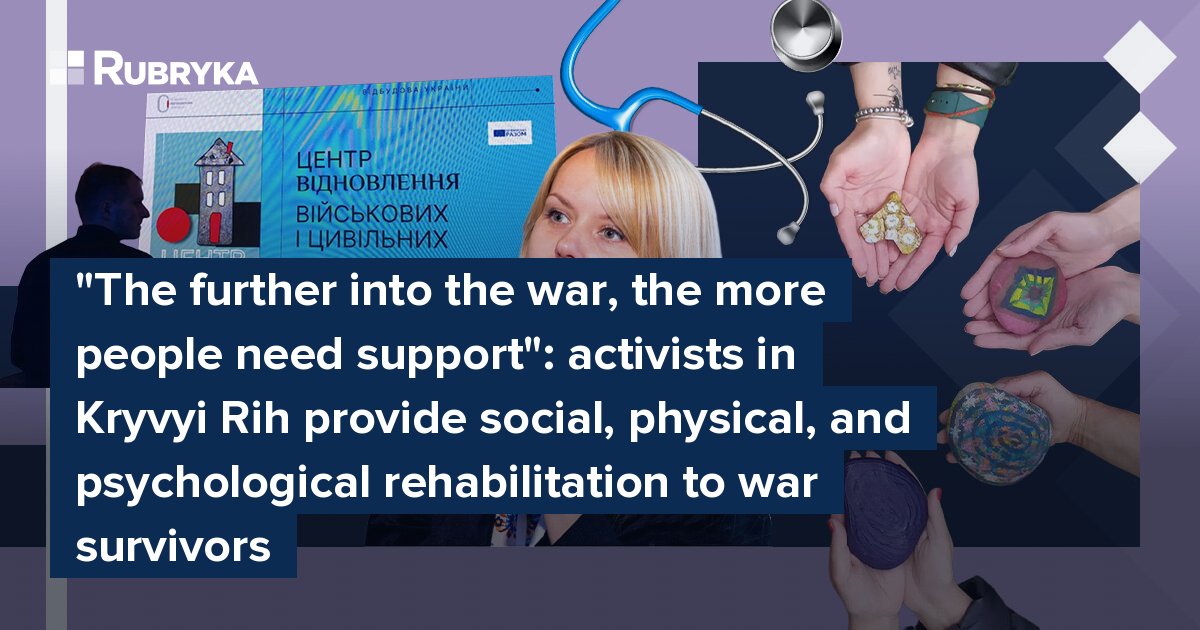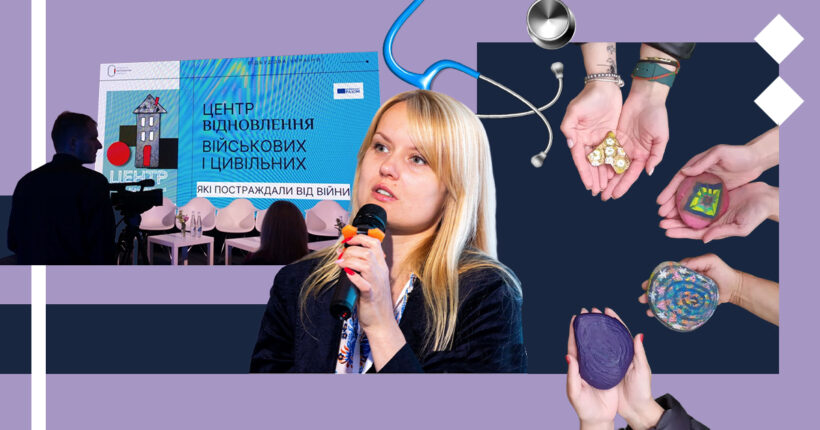
What is the problem?
Due to the war in Ukraine, the number of wounded soldiers, as well as civilians who need further rehabilitation, is increasing. There is a growing need for psychological support for both military and civilians. Meanwhile, millions of displaced people need full integration into the communities that sheltered them.
These problems need to be solved both at the state level and at the level of individual communities and settlements. In particular, there are already more than 80,000 displaced people in Kryvyi Rih. Since the beginning of the war in February 2022, almost 20,000 soldiers have received medical care in the city's hospitals, where many of them also undergo rehabilitation after treatment.
What is the solution?
Public cultural rehabilitation center
The Kryvyi Rih non-governmental organization Union of Responsible Citizens organizes the Center for the Rehabilitation of People Affected by the War.
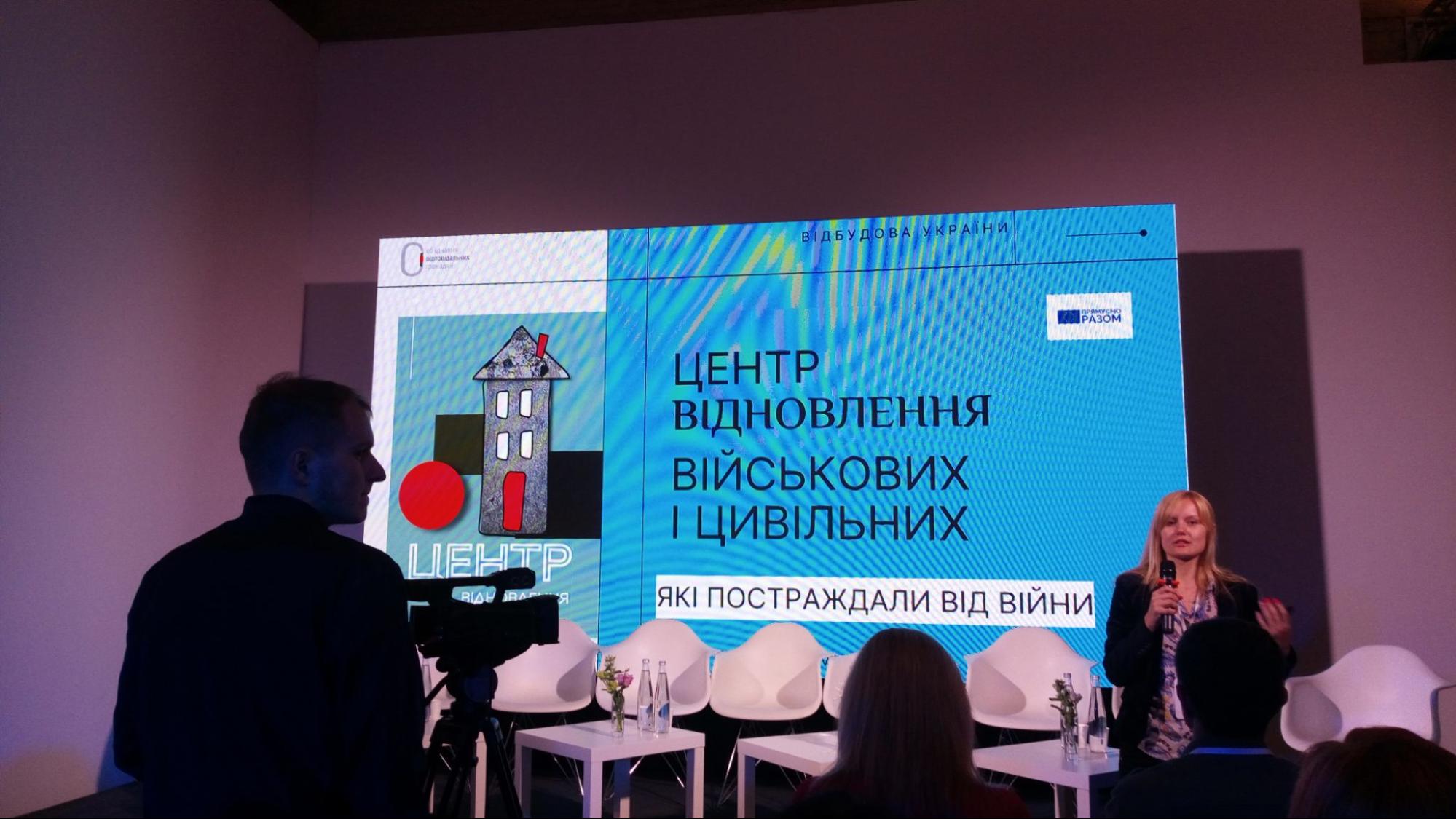
Anna Yemelyanova, head of the NGO Union of Responsible Citizens, presented the center's project during the Civil Society Forum "Outlines of the Future: Victory, Restoration, and Modernization of Ukraine." Photo by Olha Stukalo
"We will carry out legal and psychological consultations and physical rehabilitation there, but we will also add elements of cultural activity. We broadly call it social rehabilitation, referring to various trainings, creative activities, and master classes," says Anna Yemelyanova, head of the NGO Union of Responsible Citizens.
The creative works of visitors will be presented at exhibitions in the center. These will be events to which family members of service members and internally displaced persons will be invited to help the former to socialize after returning from the front and to integrate the latter into community life.
"Almost 80,000 displaced persons is quite a large figure for Kryvyi Rih," says Yemelyanova. "In the same way, we understand that people who have returned from the war will never be the same as when they started their service."
How did this solution come about?
At the beginning of the full-scale invasion of the Russian Federation, the Union of Responsible Citizens, together with the Movement without Borders organization and in cooperation with the President's Office, helped evacuate more than 600 people with disabilities and their families abroad. Then, Yemelyanova had the idea to help the wounded similarly — to find hospitals abroad and help with transportation. But in the end, they found another solution.
Just on the eve of the war, the NGO won a grant from the European Commission to create a cultural center on the basis of the mine building. Final negotiations were supposed to take place on February 22, 2022, but they were postponed, and the very next day, the project was frozen. Then, this idea was rethought in accordance with the urgent needs of life, and a Center for the recovery of military and civilians was created.
How is this solution implemented?
To realize the idea, the Union of Responsible Citizens already has:
- Own building. The organization's members found a spacious building in the historical part of the city, next to the green areas.
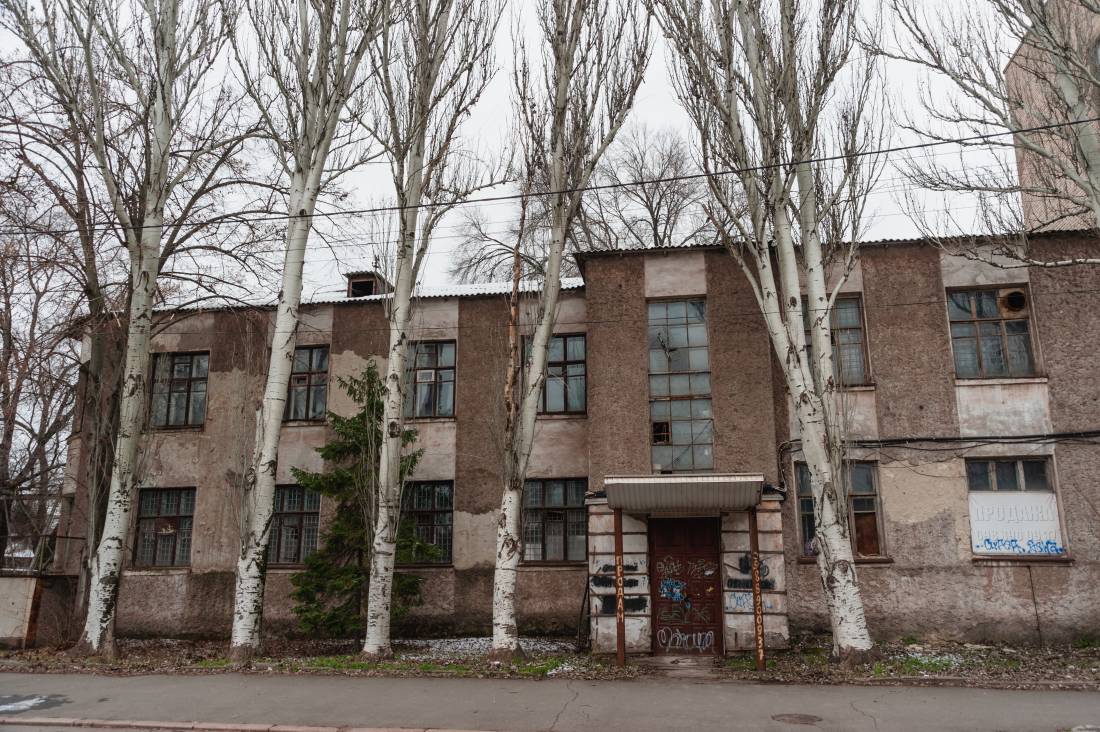
The building of the future center has an area of almost 1,800 square meters. Photo courtesy of the Union of Responsible Citizens
"Building a center on the basis of a communal institution would be a very complicated bureaucratic procedure. In principle, it is possible to rent, but we would not like, for example, to have the lease terminated or not extended. That's why we decided to take a risk and collect these funds through a joint fund," Yemelyanova shared with Rubryka.
The fundraiser was launched at the end of 2022. They did this both publicly and through direct letter appeals to all partners with whom they once dealt, including foreign ones. Very different amounts were received, but in the end, everything worked out. Recently, a building in the Bauhaus style with more than 100 years of history was purchased. The Union of Responsible Citizens plans to reconstruct it, preserving its historical appearance.
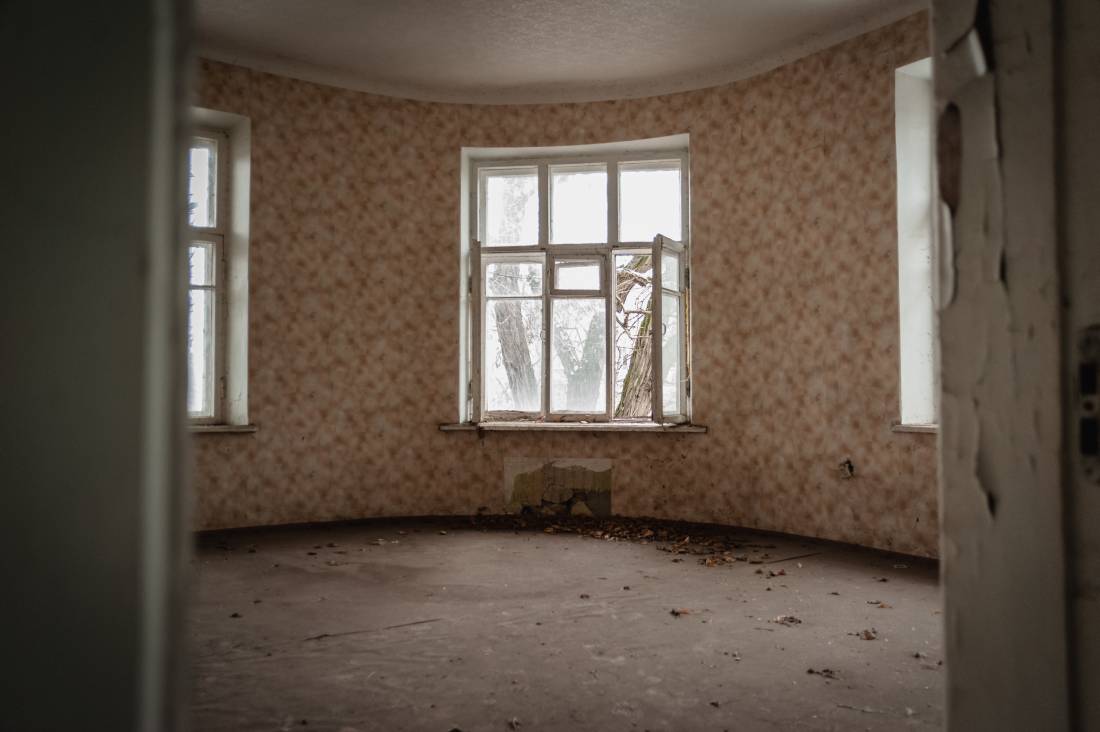
The purchased building was built in the Bauhaus style, which is characterized by functionality and the absence of unnecessary elements. Photo courtesy of the Union of Responsible Citizens
Funds for the renovation of the first floor are also available thanks to a grant received from the European Commission. These works are planned to be carried out during the year, says Yemelyanova.
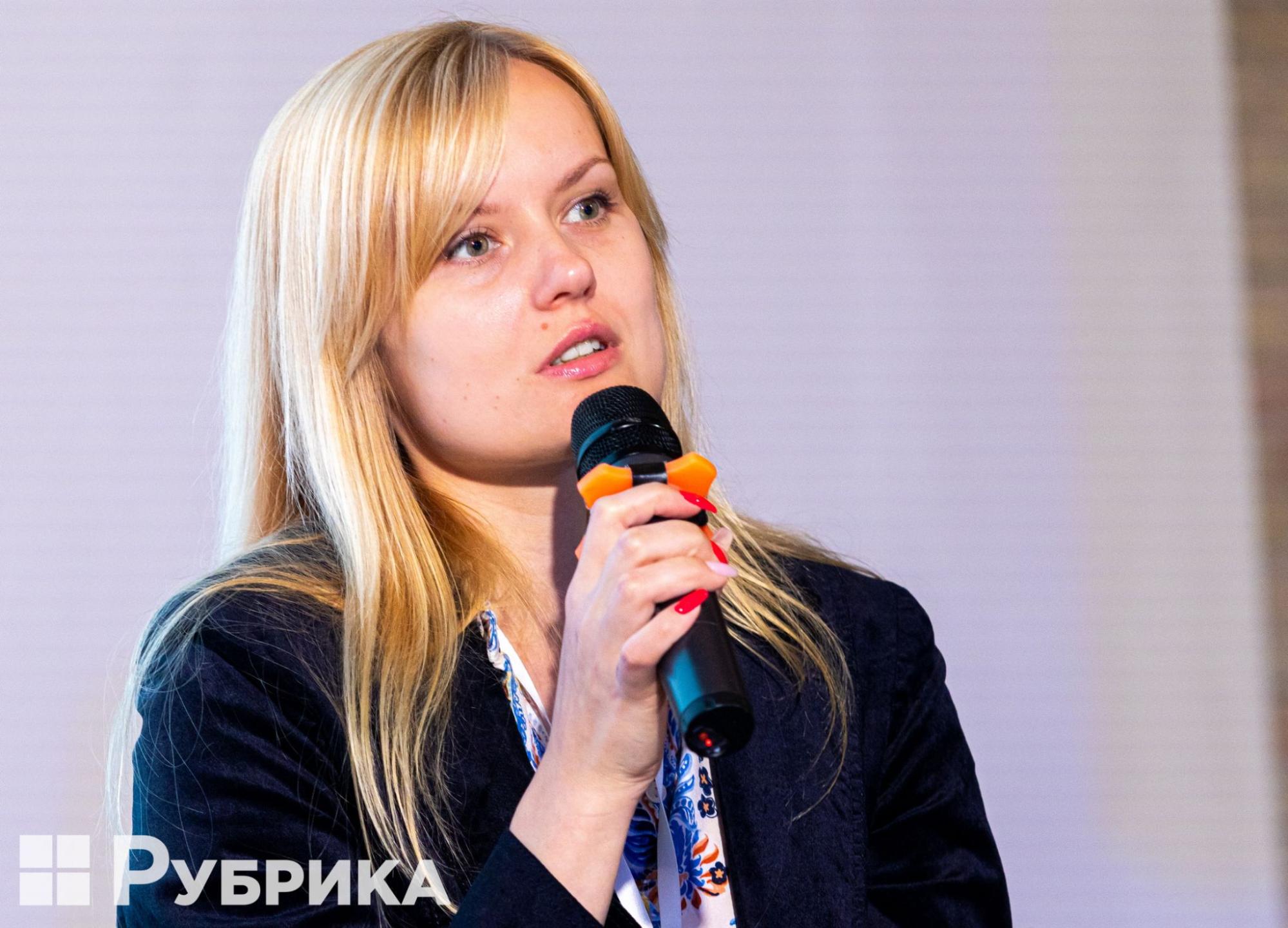
Head of the Union of Responsible Citizens Anna Yemelyanova. Photo by Mykola Tymchenko
- Own professional resource. In total, the non-governmental organization has 11 co-founders. It unites active community residents from very different fields already engaged in multifaceted activities supporting the military and civilians.
Specialist lawyers already advise military personnel — for example, regarding the payment of wages, transfer to another unit, and violations of the rights of the military by medical personnel.
Lawyer Dmytro Smyk conducts legal consultations for military personnel and their families. For example, in case of non-payment of wages, he gives two main tips:
The military themselves can submit a report to the command with a request to inform in writing about the reasons for non-payment of wages (and additional monetary remuneration, if it is also a question) and react after the answer. If necessary, a lawyer can help draft such a report.
Suppose the servicemember does not have the opportunity to submit a report. In that case, their relatives can record in writing the facts of violation of the service member's rights and transfer the information to the Military Service of Law and Order in the Armed Forces of Ukraine.
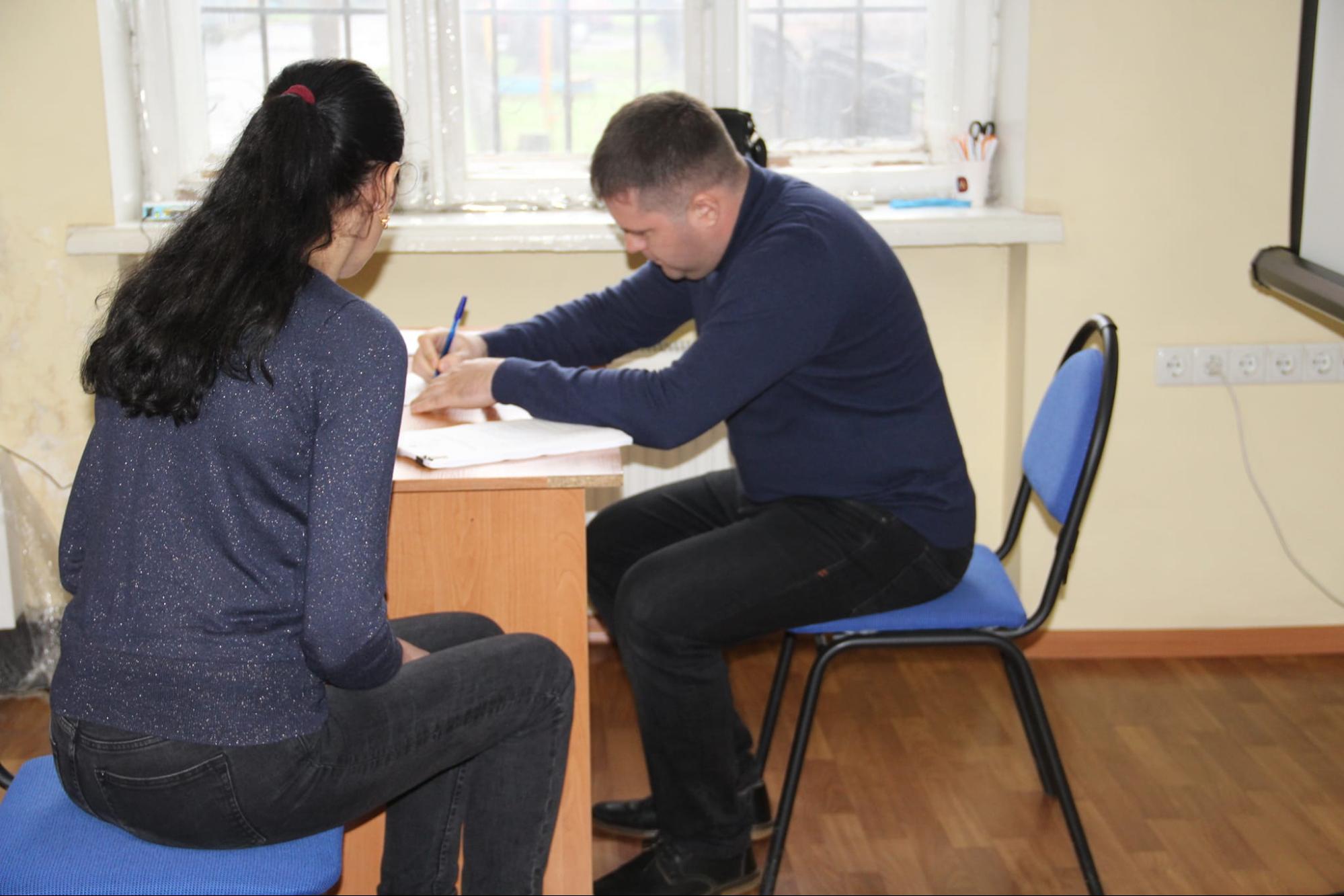
Lawyer Dmytro Smyk provides advice to family members of service members. Photo courtesy of the Union of Responsible Citizens
However, each case should be considered individually to build the most explicit possible algorithm of actions, says the expert.
Veterans who have been disabled as a result of hostilities are also assisted legally and adaptively.
The team already has a psychologist who will be responsible for physical therapy.
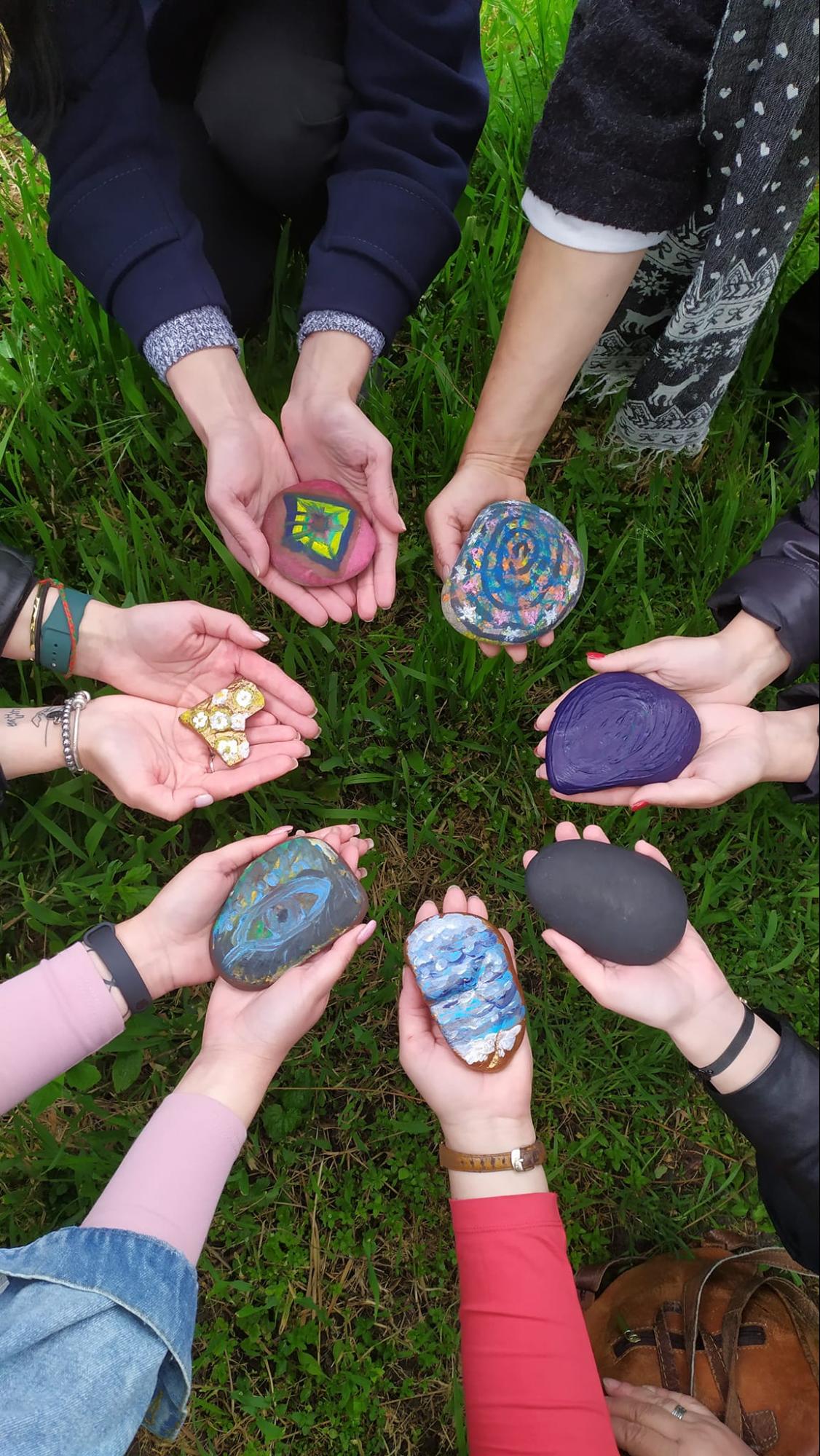
The art therapy method helps to work with complex experiences carefully and cautiously, according to psychologist Yevhenia Zhuravel. Photo courtesy of the Union of Responsible Citizens
Psychologist Yevhenia Zhuravel conducts individual and group consultations for military personnel and their family members involving art therapy methods. In the future center, she will supervise the field of psychological support.
How does psychological support work?
The psychologist works with everything stress-inducing:
- when a person has sleep disorders;
- when panic attacks occur;
- when a person feels despair and powerlessness;
- when a person sees that they cannot resist aggression;
- when there is simply no one to share the pain with.
All consultations are confidential and free of charge. Individually, a person can receive up to three consultations, and group classes are held for women and families of military personnel. Such an 8-week group support course was recently completed.
"We are all already under the chronic stress of war, and the further we go, the more help we will need. Especially the people who directly face the most terrible part of the war — servicemembers and, of course, their families," says Zhuravel.
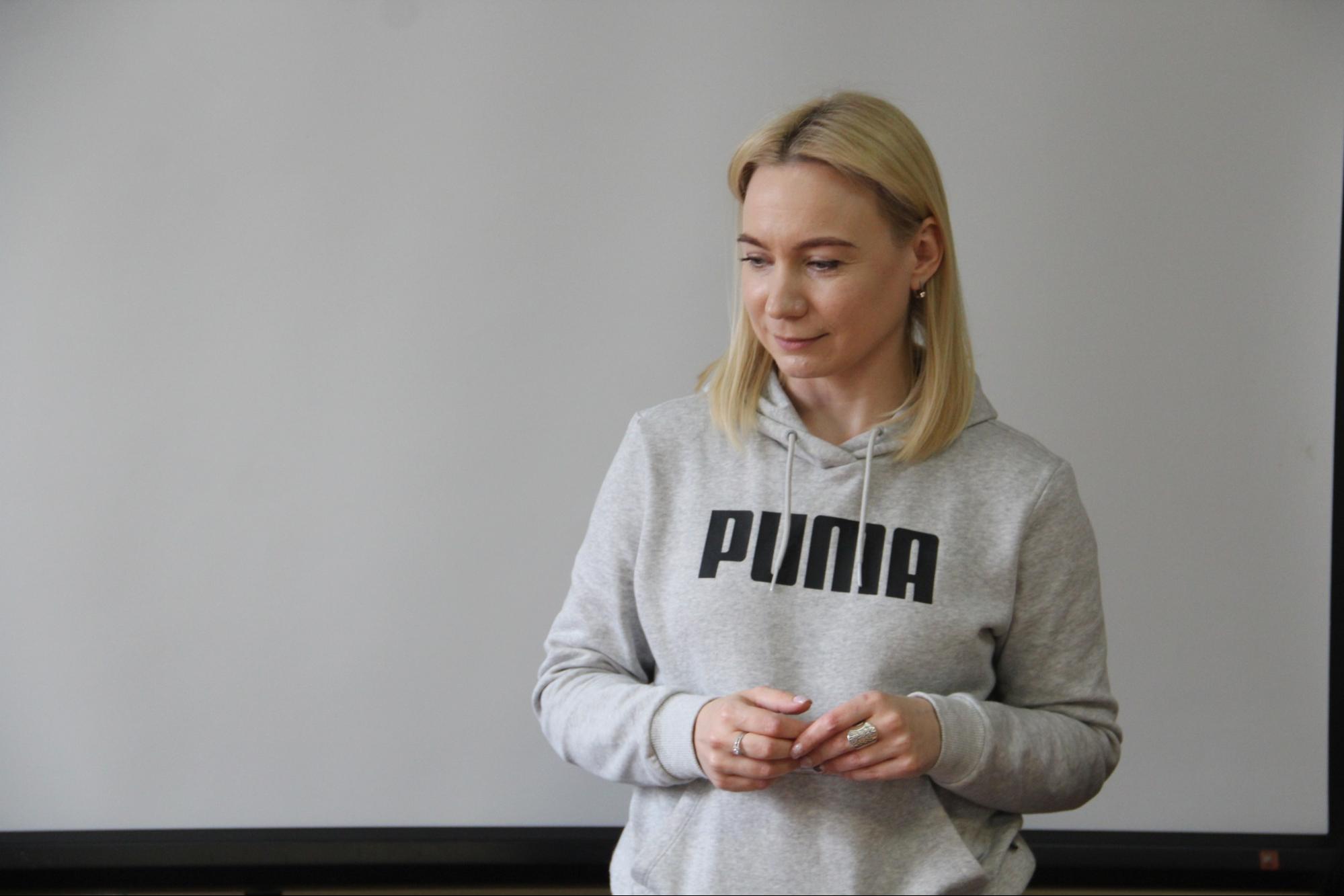
Psychologist Yevhenia Zhuravel. Photo courtesy of the Union of Responsible Citizens
She shares that service members are less likely than others to ask for help, although they need it the most.
Zhuravel shares the soldiers suffer from sleep disorders, and they often have nightmares. Also, sometimes they feel that they have become more aggressive.
Family members often ask about how to build communication with each other.
"More often than not, it is difficult for those who remain in civilian life to establish relations with military personnel, but military personnel also want to communicate with their families but are afraid of harming them, traumatizing them with their stories," the expert told Rubryka. "Then the psychological help is for them to simply talk about what they are going through."
Therefore, in her opinion, the military and civilian recovery center will be a kind of payment of society's debt to people who are now risking their lives and losing their health for the sake of Ukraine's freedom.
Even more useful solution!
Union of Responsible Citizens also helps:
- the military personnel at the front — the center collects funds and sends cars to the front (already more than 50), UAVs, first-aid kits, and other necessities;
- the affected communities of the Kherson and Dnipropetrovsk regions by sending humanitarian aid to those who suffered from the flood due to the destruction of the Kakhovka Reservoir by the Russians. People were also offered shelter in a charitable hostel on the basis of the IDP Support Center 24.
Previously, the organization provided water generators to several villages whose communications were damaged by shelling;
- the displaced people — together with a charitable organization, Shelter +, the center has handed over hygiene kits for people with disabilities, organized a second-hand shop, and given them bicycles to move around a rather big city.
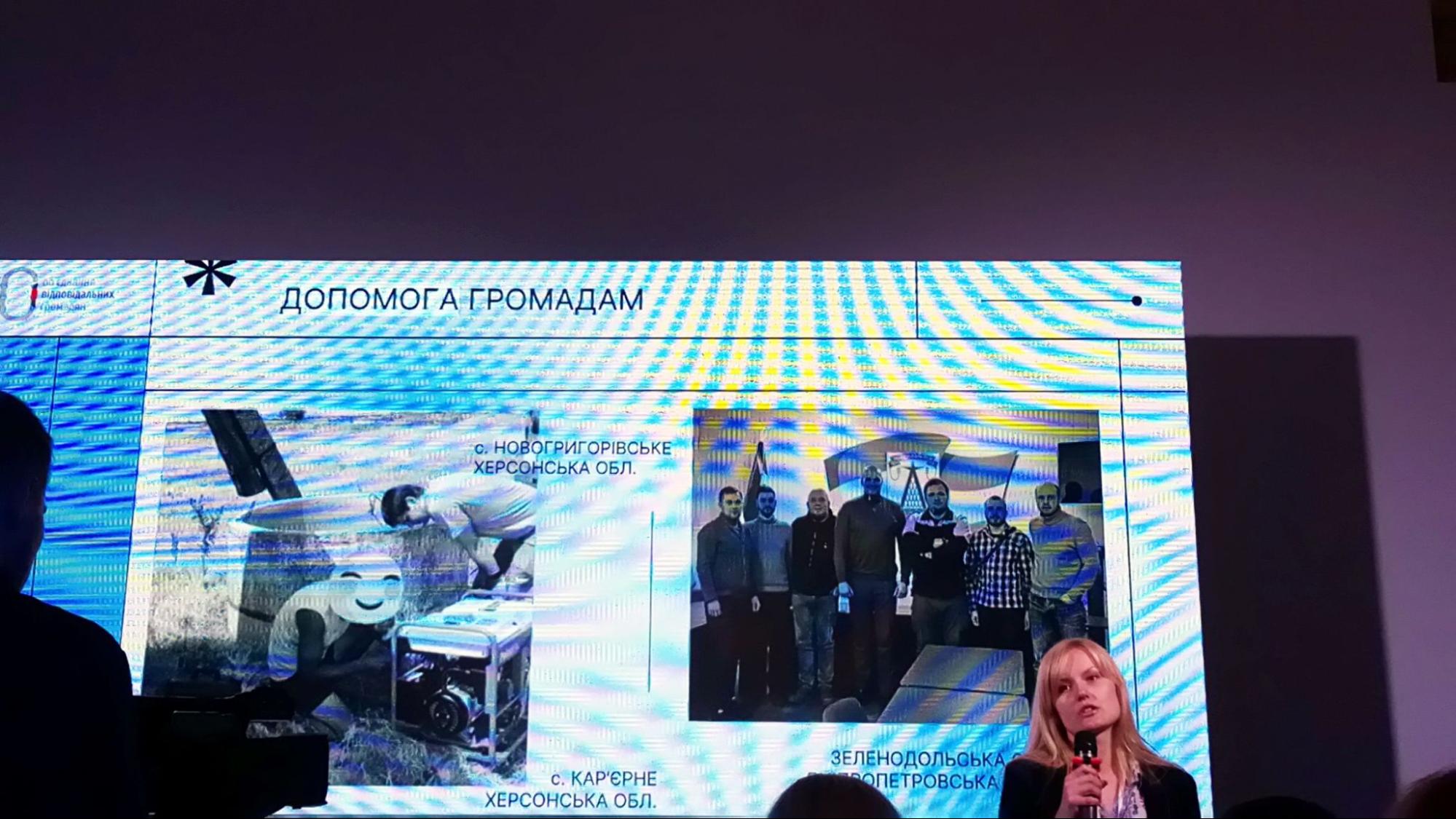
Helping the affected communities of the Kherson and Dnipropetrovsk region is one of the areas of NGO's work. Photo by Olha Stukalo
In addition, the Civilian Preparedness Center project works where civilians can acquire skills in handling weapons, as well as master pre-medical training.
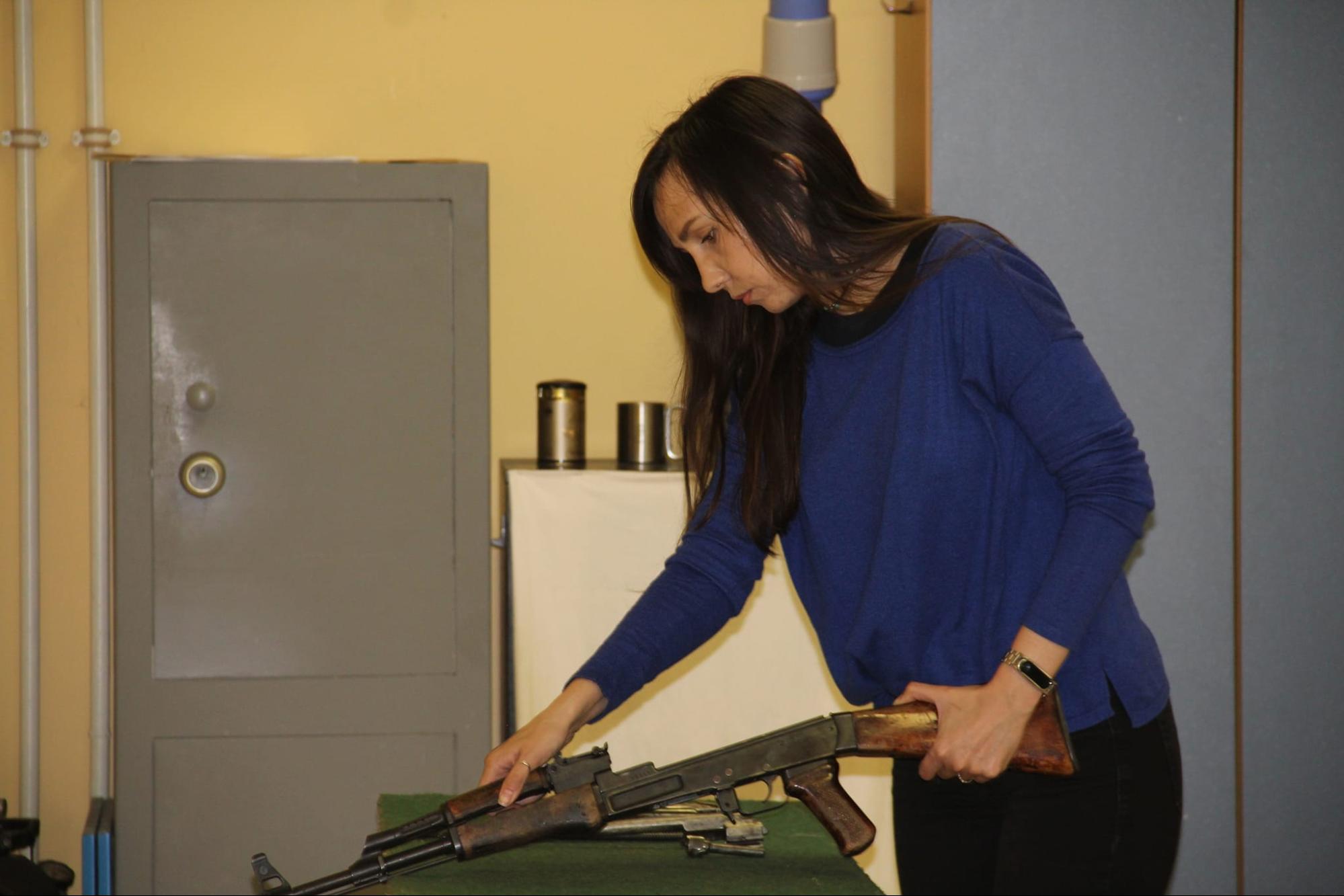
On the basis of a non-governmental organization, a project is running within the framework of which civilians are taught how to handle weapons. Photo courtesy of the Union of Responsible Citizens


